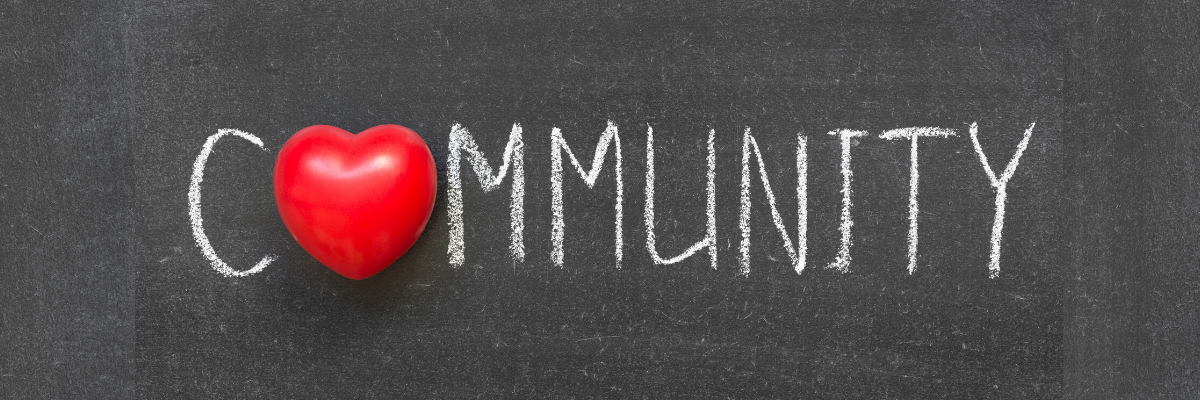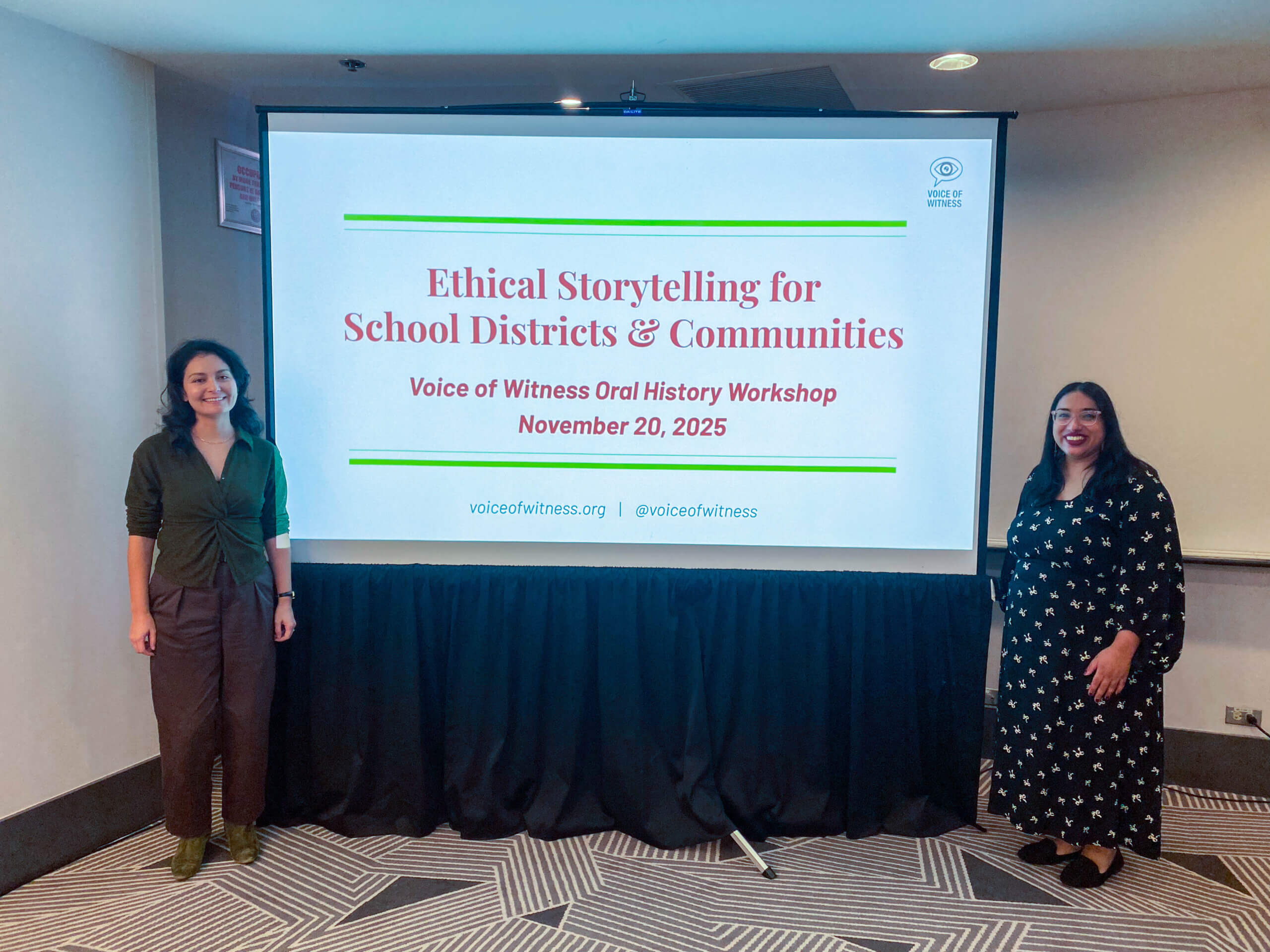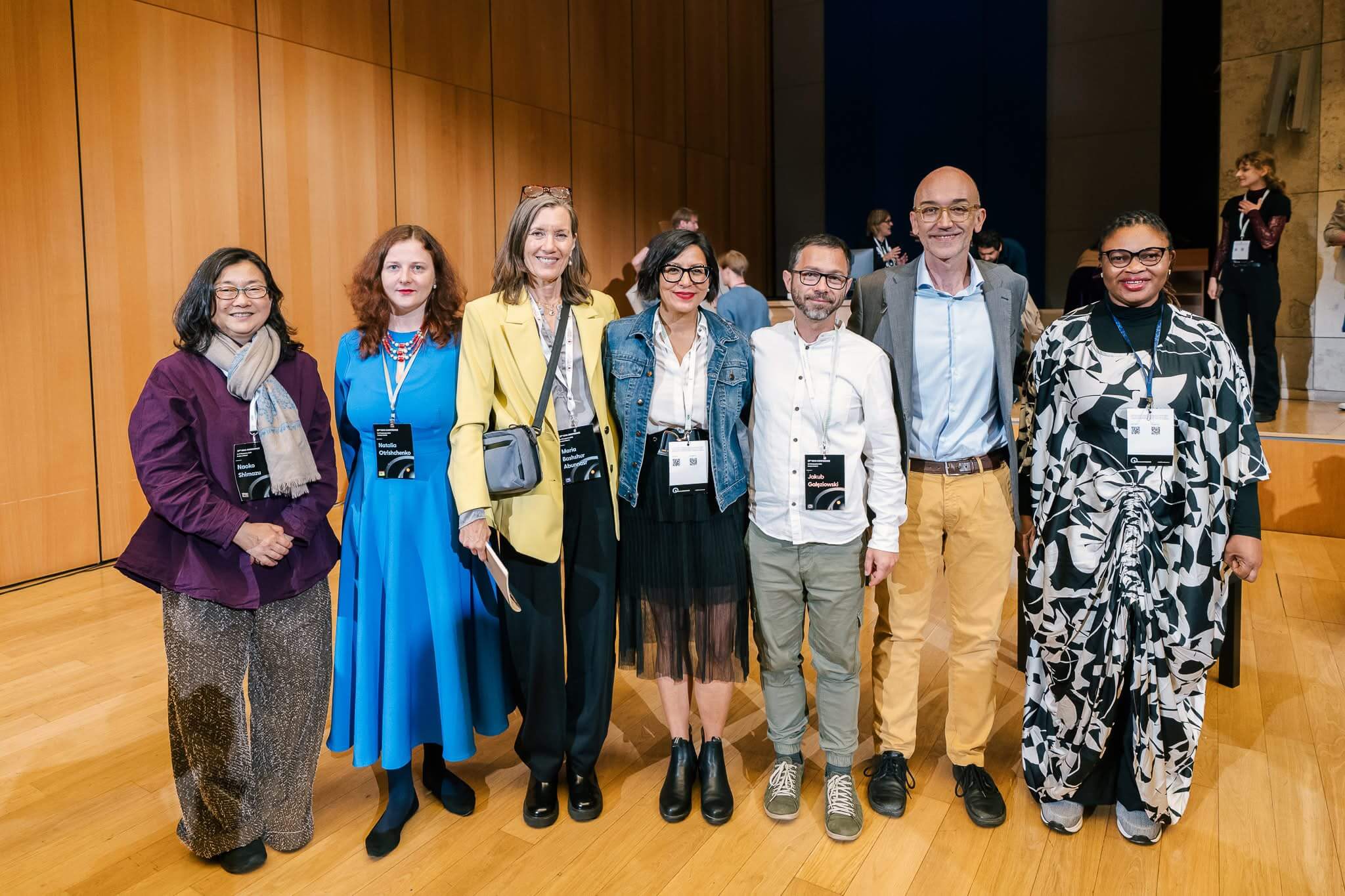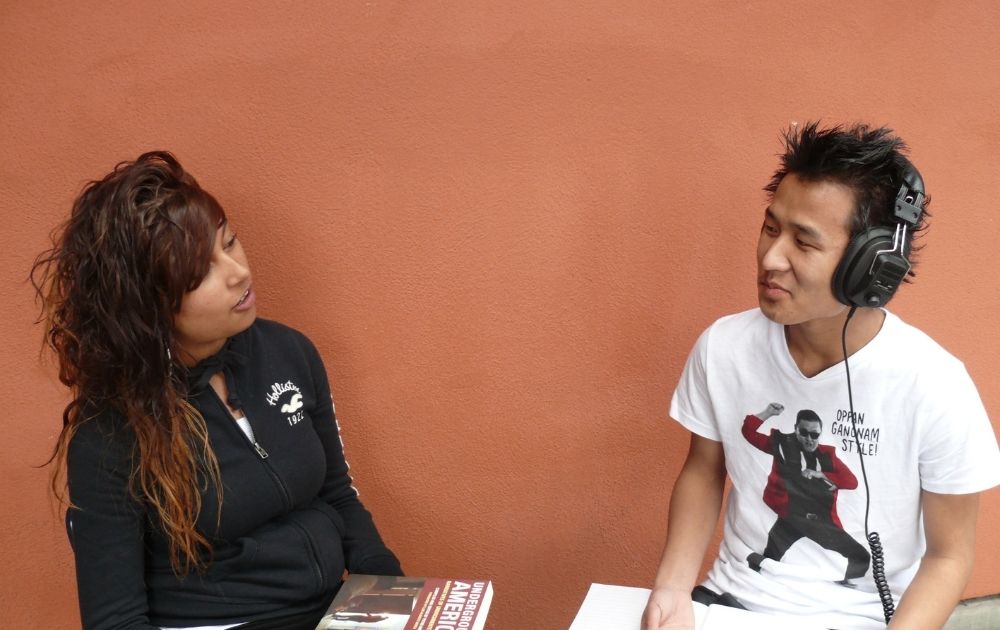
As we all know, the COVID-19 pandemic is having a serious impact on teaching and learning in the US and around the world. Voice of Witness reached out to our Education Advisory Board for reflections on navigating this difficult moment.
VOW asked the Education Advisory Board to share (a) methods of self-care and connection that they, their family, or friends are practicing, and (b) methods of care and support that they are practicing with students, colleagues, and community.
We hope the insights below can provide a modicum of inspiration for our network during these tough times. As always, don’t hesitate to reach out to us at edu@voiceofwitness.org if there are ways that Voice of Witness can support you at this time.
Rick Ayers
Self-care and connection:
Well, we got banned from seeing grandkids (their parents did it for our safety) and we are pretty much here in our house in Oakland. We are cooking a lot more, did some garden, and cleaning projects. We do read books to the grandkids most days, via FaceTime.
Care and support with your students, colleagues, and community:
I’m on sabbatical so I have no formal responsibility to students but have met with them and colleagues via Zoom. My main community-needing-support is the refugee camp in Matamoros (across from Brownsville, Texas). I spent time there just before we got locked down and got a real, palpable sense of life there: got to know kids, taught classes (writing and art), and I just know how desperate the situation is, especially since Trump’s Remain in Mexico order that has created camps on the Mexican side of the border (the one we were at has 3,000 people). The judges seldom grant asylum and now with the virus, courts are closed, as is the border. They are in desperate shape. So I am doing some work around that––and it makes our concerns pale by comparison.
Here is one of the main groups providing support, and they take donations: https://www.bayareaborderrelief.org/
Aminah Elster
Self-care and connection: We are taking this time to put the love and attention into our home, trying out new recipes and dishes, and spending more time together. As for my elderly grandfather, we connect via phone and I’m able to check in on him via webcam.
Care and support with your students, colleagues, and community:
Sharing information regarding financial assistance to help out those students that are undocumented and/or formerly incarcerated and are struggling to make it through this semester. It’s been really heartbreaking. Put simply, the requests have been heartbreaking to field. Students have asked not only for help with essential expenses for weekly groceries, pet care, and medication, but they also have included desperate appeals stating they do not anticipate being able to care for their families, feed themselves, meet rent on April 1, or continue at [school]. Many will not receive Treasury Dept. checks through the federal government’s stimulus plan, and many others have exhausted their other known avenues of recourse through the university. Still others have lost work-study jobs or hours and now express an inability to be able to support themselves at all. It has been really hard.
Barbara Yasue
Self-care and connection:
I’ve gone back to regular meditation, weekday short walks in the sunshine, and longer hikes on the weekend. I’m reading Rebecca Solnit’s book, A Paradise Built in Hell, which focuses “disaster utopias,” the idea that crises can bring out the best of the common person toward their community and stimulates activism as inequities in a society are highlighted in a social crisis. Reading that book keeps me focused the positive efforts folks are making around me during the COVID crisis. In general, I’m talking more frequently with friends in family by phone or Zoom.
Care and support with your students, colleagues, and community:
With students, I am holding synchronous classes and have been trying to set a fun, collaborative tone to the classes. Teachers in our department have set up a “Go Fund Me” page for our students who may have lost jobs during this crisis. With my community, we are having exercise classes and Saturday morning brunches. I get groceries for my elderly neighbor.
Anne Germanacos
Self-care and connection:
I quickly rediscovered the beauty of staying in one place and am using the time for writing, painting, reading, filmmaking. The quiet outside helps. The new slower pace has restored something essential. Making relieves the chaotic undoing of anxiety. No social media.
Care and support with your students, colleagues, and community:
I bring together colleagues from all over the world for 45 minutes once a week. That amount of time is plenty for the essentials: depth, light, connection. I’m inspired by the simple fact that people make this time for each other.
Bill Ayers
Self-care and connection:
Sticking to our routines, including rising at 6 am, coffee, Democracy Now!, workout (The RBG Workout is great––stay healthy Ruth Ginsburg!), reaching out and checking in with elder friends, reading time, a long walk, washing hands, short nap, clean at least one room, sit-down dinner, movie, bed time. Do not watch much news – it’s toxic! Also, not surprisingly I suppose, allowing my fury at the 1% and the political class free reign. This crisis was not unanticipated, not unthinkable––every public health person and epidemiologist saw it coming at us for decades, and said so out loud––and our broken systems are exposed (but must be explained and argued) for failing to stockpile, failing to test, failing to move at the start.
Care and support with your students, colleagues, and community:
Here’s a note to my seminar that I sent out a few days ago:
These are crazy times, as we all know, and I’m sure that you’re each doing the best you can to be strong and safe, to check in on loved ones and family as well as neighbors and strangers, and to be your best, most generous self.
Social distancing is such an awkward, ugly term as well as an unfamiliar but necessary practice we’re all learning to implement together. As we move through these dire and unpredictable times, let’s change that language and call it what it is: social solidarity. We’re all in this together, after all, and among the zillion things we can do to help one another out as part of a shared community is to break the chain of contagion and allow some sensible space between us—it’s an act of cooperation, really, not distancing or isolating, and an expression of human harmony and not dissonance. Call it by a truer name: physical distancing and social solidarity!
Thank you to the medical folks, the nurses and doctors and staff, thank you to the garbage collectors and the maintenance folks, the farmers and food workers and grocery store clerks, thank you to the bus drivers and transit workers, thank you to the electricians and plumbers and pipe-fitters, the pharmacists and delivery folks—thank you to all. Thank you.
I’m eager to get started with class, but this will be different from what any of us has experienced before, and we will count on each other to be kind, understanding, flexible, generous, and forgiving as we make our way into the unknown. A colleague of mine with experience in distance learning said that on-line classes are to actual classrooms what frozen pizza is to home-made pizza: similar ingredients but a vastly different experience.
Let’s all do our best!
Gerald Richards
Self-care and connection:
I’ve made sure to develop a routine and make sure to stick to it. Waking up at the same time, working out in the morning, taking a walk. I’ve also been participating in virtual video happy hours, or a blether as they say here in Scotland. It’s been lovely to see people’s faces, share a drink or a meal and catch up. A few friends are thinking of starting a virtual book group and I am going to take this extended time at home to teach myself guitar!
Care and support with your students, colleagues, and community:
We are trying to build an online presence to connect with pupils. We had just finished a workshop cycle right before we went into lockdown and were supposed to work with a new group of children. We are now thinking of ways to work with them and keep up writing and creativity for them, even though they are home. We are working with our volunteer network to create an online pen pals project where volunteers and kids will write to each other.
Praveena Fernes
Self-care and connection:
The days when I keep some distance from the news are actually quite relaxing; the other days I feel more anxious on behalf of the world. But overall, very grateful to be safe and healthy.
When I’ve felt compelled to dig into the philosophical questions that emerge from this crisis, I’ve found wisdom in Arundhati Roy’s The Pandemic is a Portal and Wendell Berry’s Manifesto: The Mad Farmer Liberation Front.
I savor my daily hikes in the Bay Area, time spent experimenting in the kitchen (recipes are just suggestions, right?), and catch up calls with loved ones across the globe. I have been reframing what it means to be productive, and feel privileged and proud to have spent more time with my dog than my screens this month.
Care and support with your community:
In this apocalyptic state, words seem to be my anchor, and I have been writing and drawing sporadically. I doodled Jenny (my poet pen-pal) scattered bodies to fill with words, a zine-like manifesto we’re calling “If Corona Were a Woman.” I’ve been hopping on weekly Zoom calls dedicated to responding creatively to the looming questions this crisis has left so many of us with.
Diana Cohn
Self-care and connection:
In order to support the colleagues I work with to cultivate and practice self-care for themselves, I need to first practice self-care and loving-kindness towards myself. I do this through meditation and by taking care of my health and by being in-service to my community.
Care and support with your community:
These practices are actually the fertile ground for the coaching conversations I am having with leaders in the non-profit sector, who are adapting and trying to make sense of this moment. Deep listening and paying attention to what is going on in the hearts and minds of my colleagues can be a refuge in the upside-down world we find ourselves in. One inquiry I have been interested in is how we can honor and create the spaciousness to cultivate these practices in order to nurture resilience in our lives and in our organizations.




